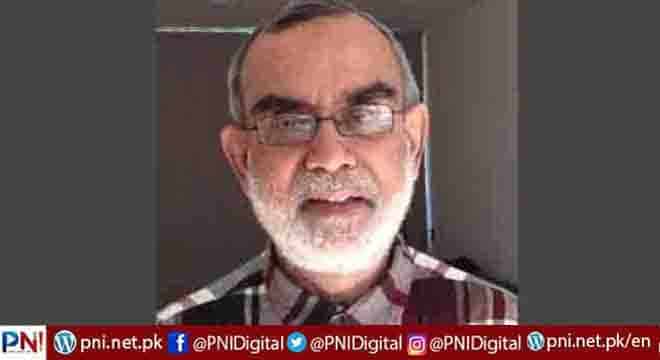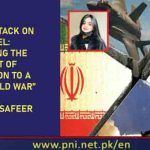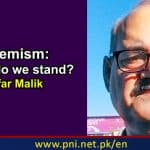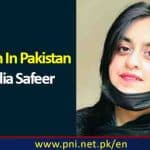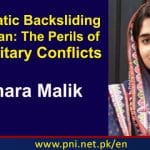Faiz Ahmad Faiz in one of his brilliant interviews mentioned the critical importance of three dimensions of culture, its length, breadth, and depth. A culture’s length, according to Faiz, could be measured in terms of time going back to the origin of a culture at a certain point in history, breadth by the geographic spread, and depth by the social layers penetrated by a culture. Therefore a culture’s richness and power could be measured by taking into consideration these three dimensions. Language, art, literature, architecture, customs, values, and forms of knowledge depicting a culture can all be put to this test. We can also look at our political culture as a three dimensional space. Our fragile democracy will also gain strength if our political culture becomes socially more inclusive, draws from the diverse historic tradition of solidarity among the people living in our country, and strengthen the bridges connecting various ethnic and faith groups.
The strength of our imagination of an inclusive democratic culture will help us in building a democratic society. The weakest link of our democratic culture is an extremely low level of trust in our society. Our trust capital has rapidly depleted in the last four years. We cannot point fingers at any one political group or power player, but we need to work together to build trust. The trust deficit is the major barrier to the realization of our potential as a nation. Due to a low trust culture, we are a nation of bright individuals and underperforming institutions. This low trust is caused due to dominance of the win-lose mindset in dealing with social, economic, and political issues. It arises from the way we think of the ‘same’ and the ‘other’. Who do we include in the same and how do we deal with the ‘other’ that fails us in public life. Consider the following.
Our landscape is spread between the Himalayas and the Arabian Sea, our history goes back to 1400 years of Islamic tradition and thousands of years of pre-Islamic traditions, and our depth consists of social layers from pastoral and fishing communities of our coastline to the business and professional class well integrated into the global economy. We have a diverse, layered and rich cultural landscape but do we follow practices that ensure a fair share in the national wealth and power for all the classes, groups and genders. The common perception is that we don’t. The rules of the game that we follow are flawed. Our democratic tradition is shallow and fragile. There is nothing wrong with democracy, but the political culture that we have created in the name of democracy undermines democracy. Instead of engaging in blame games don’t we need to ask what rules we follow in political and economic decision making? and where do we need to improve?
Considering the breadth of our economic space we need to revisit how much resources we need to allocate to defence, development, and, welfare. Our defence and welfare both depend on human welfare and our investment in education and health. We spend the least on our poor and tax them the most. Our budget takes care of 10 percent of our population and the rest of the 90 percent depends on the informal economy. The people who contribute the most to the national exchequer receive the least through social sector development and no share in the power structure. We don’t share information with them on the money they contribute to the national budget in the name of confidential information. By creating this conflict between the responsibilities and rights of the ordinary citizen we have reduced the breadth of democratic space and created the basis for perpetual instability and loss of trust in democracy and acceptance of ‘conspiracy theories.
Don’t we need to give our citizens the opportunities to access information from the government, share in power through devolution of power to local government, and inclusion in decision making through participatory budgeting? This will increase the depth of our democratic culture.
We also need to find ways for day-to-day engagement of citizens with the government and look at the problems faced by the people not as an opportunity to complain or blame the victim, but as an opportunity to find a solution by engaging with them. People’s gains are not our elite’s losses. The relationship between the people and elites is not a zero-sum game. Investment in people will generate returns many time more than the investment and benefit everyone.
It is also important to mention here the relationship between ideology, politics, and culture. These ideas originated in the revolutionary left politics but provide meaningful insights about democratic transformation in Pakistan as well. Leader of the Chinese revolution Mao Tse Tung said that there can be no revolution without a revolutionary party. V.I. Lenin leader of the Russian leader said that there can be no revolutionary party without a revolutionary ideology and Italian revolutionary intellectual Antonio Gramsci said that there can be no revolutionary ideology without a revolutionary culture. The same can be said about the relationship between democratic ideology, politics, and culture. If we want to strengthen democratic politics, we need to begin with the democratic culture. We have all a role to play as cultural workers of democratic Pakistan. Each one of us needs to change my Pakistan by strengthening the culture of solidarity. Our enemy is fear of the other. We need to learn to trust and cooperate with others. It will trigger off the change that we want and relieve each one of us from the burden of self-righteousness that is crushing our backs.


